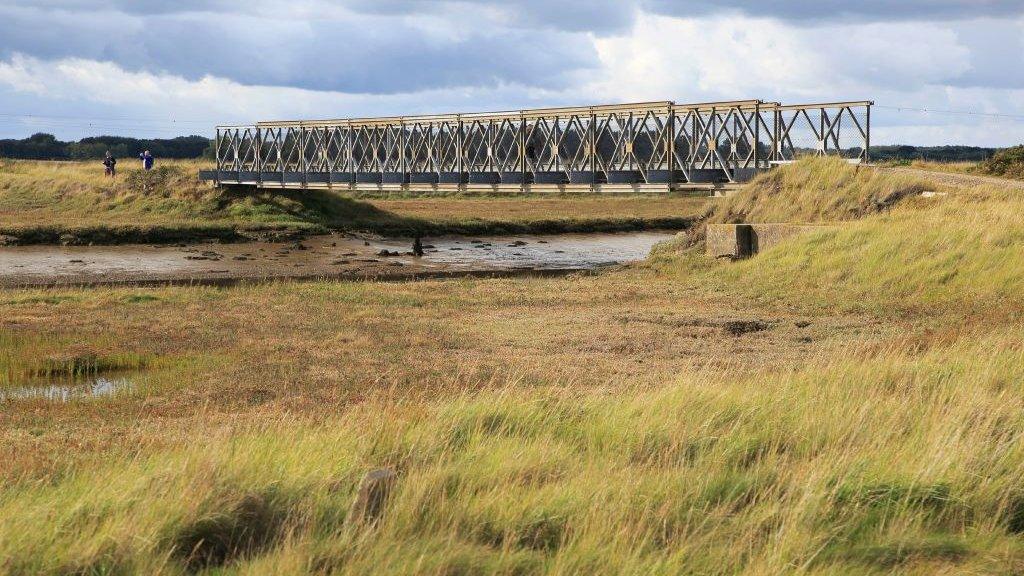Climate change: UK protecting blue belt marine areas
- Published
- comments

The government hopes these areas will help to protect wildlife in the UK
Seas and coastlines around the UK will now be protected by the government.
There have been 41 new conservation zones listed, bringing the total of protected areas up to 91.
These areas will form a 'Blue Belt' which covers 220,000 square kilometres of the UK.
They hope this will help protect animals such as seahorses, ducks, sharks, jellyfish and mussels.
Certain fishing techniques such as seabed trawling or dredging can destroy the animal's habitats, but this new order will protect certain areas from damaging techniques.
Certain fishing techniques can damage wildlife habitats
Joan Edwards, director of living seas at The Wildlife Trusts, said: "It's fantastic news that now we have 91 marine conservation zones - they will form a vital series of underwater habitats which can be nursed back to health.
"Now we need to see good management of these special places to stop damaging activities such as beam-trawling or dredging for scallops and langoustines which harm fragile marine wildlife."
Environment Secretary Michael Gove said: "The UK is already leading the rest of the world by protecting over 30% of our ocean - but we know there is more to do."
One of the new protected area includes Orford, off the Suffolk coast, which is an important nursery for fish, and home to burrowing anemones, shark and rays and harbour porpoises.
Let us know what you think about protecting the UK seas in the comments below.
- Published8 June 2018
- Published17 March 2020
- Published15 May 2018
